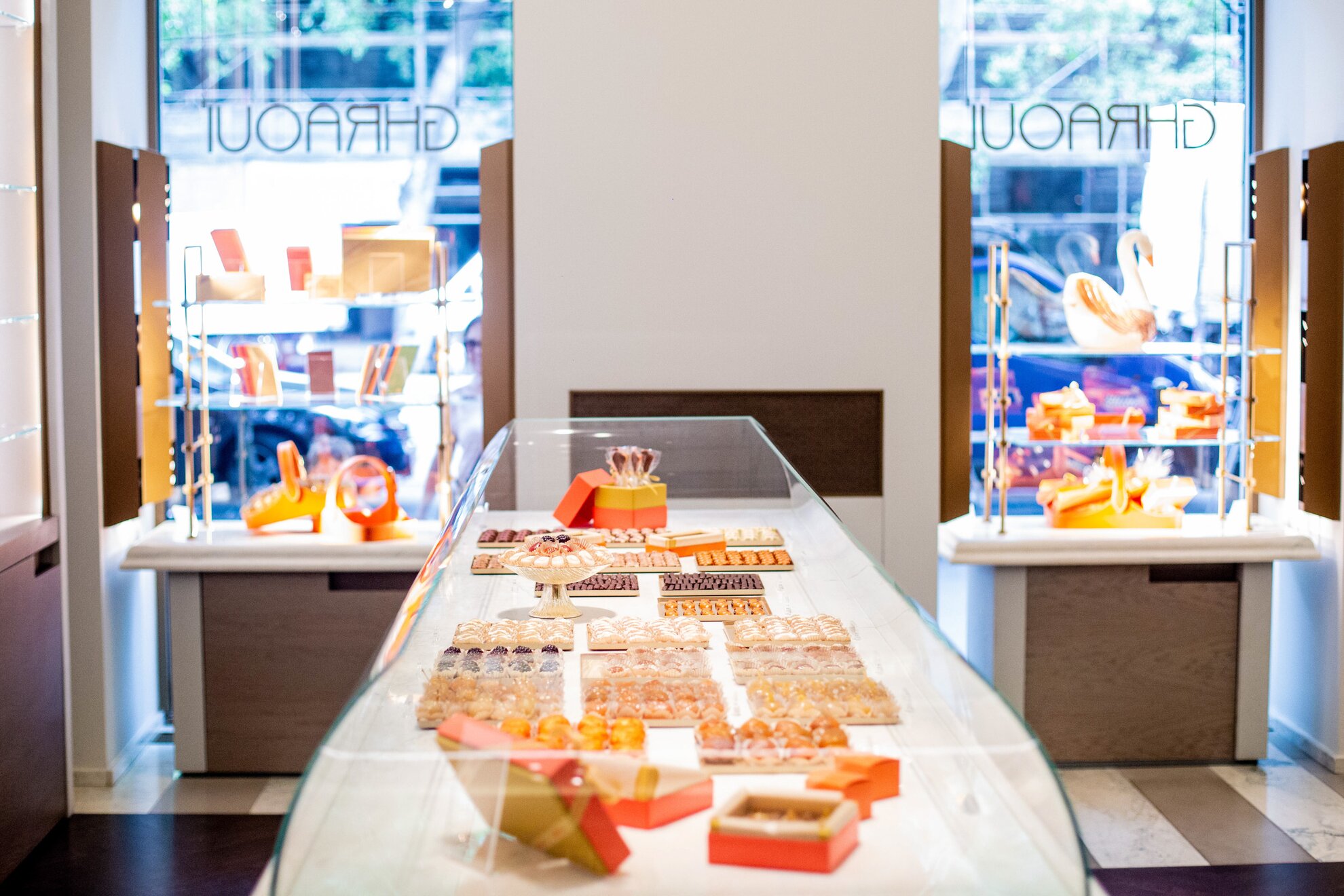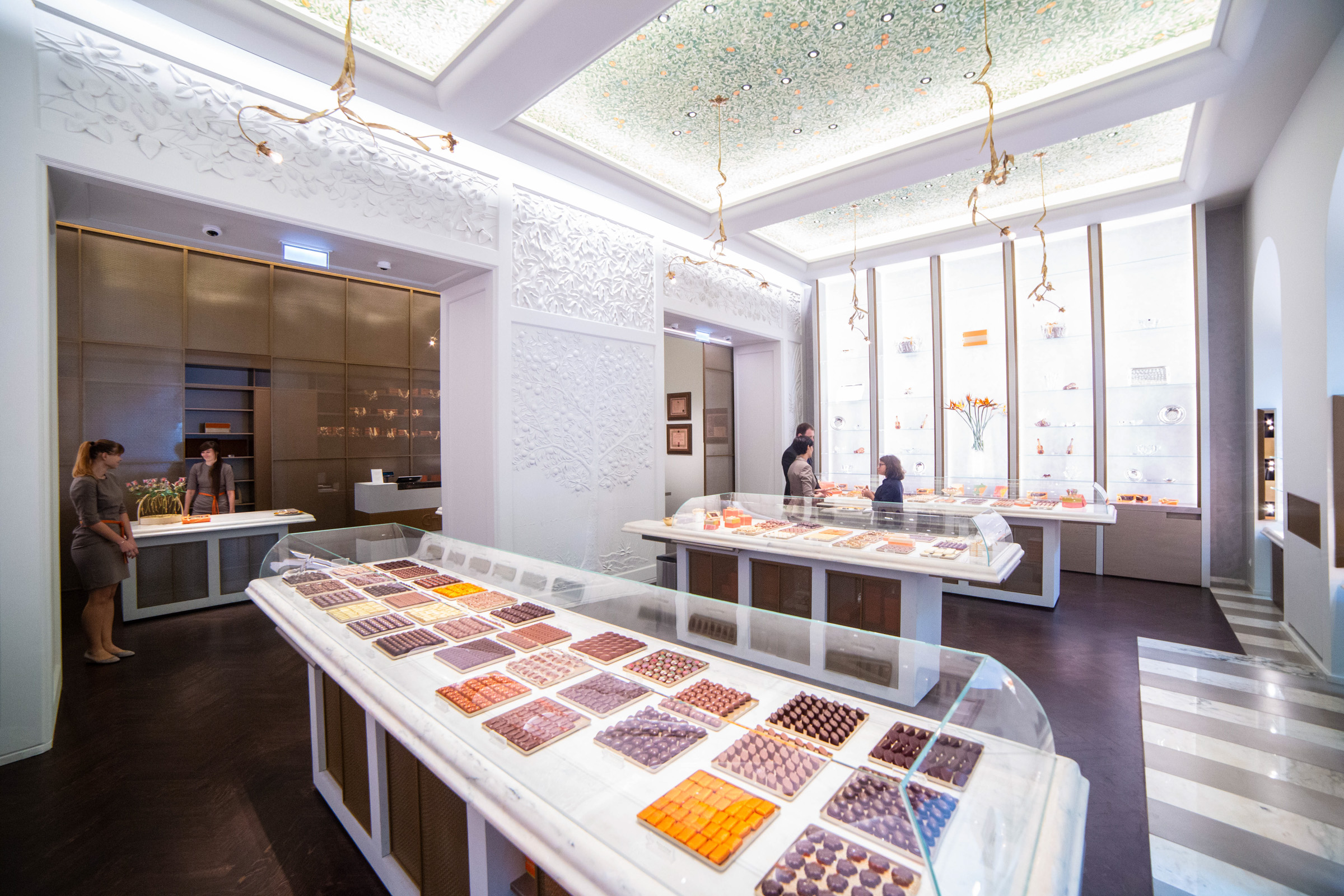On Budapest’s elegant Andrássy út lined with stylish boutiques, a sumptuous store entices sweet-toothed passers-by. Inside, polished glass counters showcase finely designed bonbons, displayed piece-by-piece and in elegant gift packages. The Ghraoui chocolate brand set up at this most fashionable part of town is run by a historic trading family with roots in Damascus, Syria, where their business dates back to the early 19th century. However, operations were not always so slick.
At a recently opened palatial outlet on august Andrássy út, a logo reminiscent of the damask rose features the date 1805. This is when the Ghraoui name was first associated with commodities such as sugar, coffee and tea, the initial trading sectors of this Middle Eastern family. The Ghraouis soon joined forces with Syria’s first industrial-scale canning company for fruit and vegetables, making this 20th-century venture a success story in Europe and America, as well.

Adding chocolate to these fast-moving product lines dates back to 1930, when Sadek Ghraoui of the fourth generation began selling cocoa-infused confectionery. In the early years of this then-newly forming business, a silver knife was gifted with each chocolate for extra appeal. Meanwhile, a French chocolate connoisseur was hired to create sweets of the highest quality.

Soon, Ghraoui chocolates were available in many of London’s deluxe department stores, and the brand also supplied to the Queen of England. However, political turbulences emerging after Syria proclaimed its independence forced the company to be nationalised, leaving just one tiny shop in the founding family’s possession. After Sadek’s passing in 1969, his son Bassam took over the venture to breathe new life into the Ghraoui label. In 1990, he opened a new chocolate factory, regaining previous renown and securing numerous prime awards for the brand.

But the outbreak of the civil war in 2012 once again saw the closure of the Damascus-based factory. Not long after, a bomb strike shattered the entire manufacturing complex. Thanks to Bassam’s dedication, in the years that followed the company was relocated to Hungary, where the family had already maintained long-established business links.

Today, Budapest’s industrial district of Csepel is home to the new Ghraoui chocolate factory, providing jobs to some 50 people. To give a well-deserved showcase to the business, last autumn the Ghraouis opened a flagship store in downtown Budapest, designed by renowned French architect Bruno Moinard.

For this project, the shop’s classic façade was renovated with turn-of-the-century elements, while touches of Damascus-style decorations spice up the interior design. Frescoes on the wall display various fruits, hinting that these initial success products are still very much part of the operations: now these fruits are encapsulated in the chocolates in dried, pureed and candied forms.

The entire chocolate assortment has been adapted to suit European customers, which means that they are less sweet and come in smaller sizes than in the Middle East. The secret recipes used for the chocolate concoctions are nowhere to be found in writing – the chocolatiers know only certain phases of the preparation processes.

The company’s main goal is to reintroduce the Ghraoui brand as a Hungarian product and they commissioned a dozen Syrian chocolatiers to provide all the necessary training to the local team. To honour the host country, a distinct Magyar line has recently been featuring such treats as Coeur de Budapest (Heart of Budapest), Jardine de Sissi (Sissi’s Garden, after the Habsburg empress) and Couronne de Saint Étienne (Crown of St. Stephen, Hungary’s first king).

Bonbons come in diverse forms and flavours, including truffles, pralines, while whole chocolates are also available. These jewel-like treats feature precisely crafted designs, some are even painted by hand. It takes half a shift for a factory worker to apply colour on a single piece and if the pattern is not according to the required standards, the bonbon won’t be offered for purchase.

A kilo of chocolate costs between 8,000 and 25,000 forints, a set of eight pieces costs 3,500 forints. As there’s no minimum order quantity set, customers can even buy just one piece.

Looking ahead, the next Ghraoui shop will soon be launched in Paris, while future plans also include the company’s further expansion. But the main factory and showroom will remain in Budapest. Meanwhile, to supply the only Ghraoui shop in Syria, a small manufacturing unit continues operations in a demilitarised zone of Damascus, showing that the brand won’t be losing its roots.




